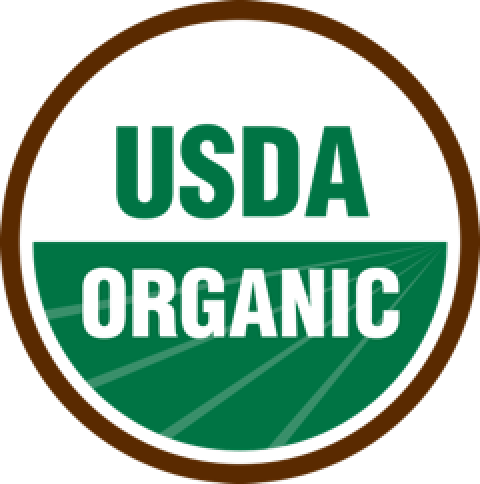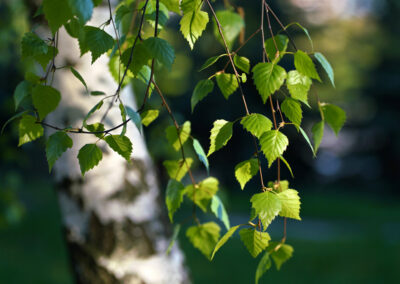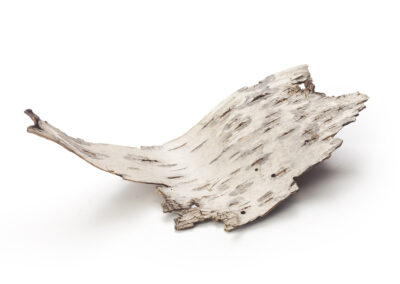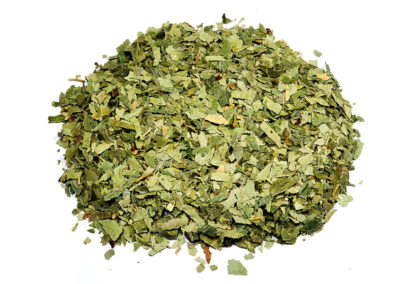White birch is a deciduous hardwood tree with characteristic white satin bark and broad leaves. It is widespread in temperate and Boreal regions of the Northern Hemisphere. Its soft, flexible and waterproof bark was used by Native Americans to hand craft canoes, wigwam, bowls, bobbins and various everyday objects. In folk Native medicine, teas or beverages made from bark were considered as a remedy against digestive tract disorders (stomach pain, diarrhea). Salves and poultices from bark were traditionnally prepared for topical use to relieve skin wounding (bruises, burns) and other skin disorders (eczema, psoriasis, eruptions).; White birch cork is manily known its natural aspirin-like component (Methyl salicylate), and its resulting effects to soothe pain and inflammation. Thus, it is use in phytomedicine to treat fever, arthitris, rheumatism, gout and headache. In addition, it is said diuretic, promoting urine flow, preventing from cystitis, prostatis and kidneystones. Its diaphoretic properties help in overall body detoxification and fever reduction as well. Antibacterial and anti-viral health benefits have also been attributed to its cork.
Fermented White Birch
KefiViva Fermented White birch is a living certified organic fermented White birch liquid produced by a monitored bioprocess and is used as a base for creating various types of living, stable and functional beverages.
Botanical Informations
Botanical Name: Betula alba L. (= Betula pubescens Ehrh. Subsp. pubescens)
Common Name: White Birch
Family: Betulaceae
Used Part: Bark, leaves
Product Features
Apparence: Liquid
Taste: Sour white birch
pH: 2.0 – 3.5
Acidity: 10.0 – 15.0
Brix: =5.5
List of ingredients: Water, organic burdock roots, organic raw cane sugar, ancient symbiosis of yeasts (Schizosaccharomyces pombe, Zygosaccharomyces bailii, Dekkera bruxellensis) and bacteria (Acetobacter sp., Gluconoacetobacter sp.)
Lifetime: 2 year(s)
Storage: Keep container tightly close in a cool (between 39 and 68°F), dry and dark place.
Nutrients after fermentation
Healty Benefits
Anti-imflammatory
Antimicrobial
Digestive
Hepaprotective
- Controlling overall inflammatory reactions (arthritis, rheumatism, allergies);
- Protecting against microbial infections: antibacterial, antiviral and anti-protozoal;
- Providing hepatoprotection: prevents the occurence of gallstones;
- Promoting overall body detoxification: increases body water excretion;
- Enhancing healthy urinary tract functions: increases urine flow, prevents kidneystones;
- Protecting cells from cellular damages from oxydative stress;
- Supporting healthy digestive and gastrointestinal functions;
- Increasing vital energy;
- Boosting the immune system.
Creating Healing From Nature
Let’s Build Something Together
Our goal is to work with you, to optimize the authentic probiotic effect of your products and to create healthier, more marketable, and scientifically superior consumer options.



